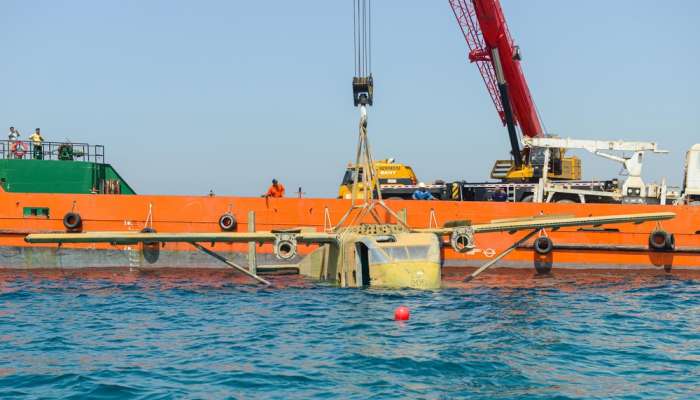The Environment Authority has recently completed the final phase of the coral reef rehabilitation project in the Daymaniyat Natural Reserve in Muscat. Working in cooperation with the Ministry of Defence, the project involved dumping out-of-service military equipment into the marine environment to create an underwater museum that would provide a suitable habitat for the growth of coral reefs and the proliferation of marine organisms. The goal of the project is to rehabilitate and expand coral reef areas that have been impacted by natural and human influences, ultimately creating a new ecosystem that is comparable to natural coral reefs. It is expected that the site will attract a wide variety of marine creatures of different sizes, and there are plans to establish an underwater military equipment museum as part of the project.
The initiative not only aims to restore and enhance coral reef habitats but also to support eco-tourism in the region. By creating a unique and innovative tourist attraction for visitors and diving enthusiasts, the project will contribute to the tourism industry in the Sultanate of Oman as a whole. Additionally, this new underwater museum will help reduce the pressure on natural coral reef sites in the Daymaniyat Islands Nature Reserve by providing an alternative location for tourists to explore and enjoy. This strategy aligns with the broader goal of promoting sustainable tourism and conservation efforts in the area.
In order to execute the project, the Environment Authority collaborated closely with the Ministry of Defence, which provided eight pieces of equipment for the operation, including seven Man Atlas trucks and a Skyven aircraft. After careful consideration, a site near the islands of the Daymaniyat Natural Reserve was selected for the project due to its suitable conditions for the growth and presence of coral reefs and marine organisms. The presence of natural coral reefs in the vicinity is expected to aid in the rapid establishment of new habitats in the project site, facilitating the development of a thriving underwater ecosystem.
Overall, the coral reef rehabilitation project in the Daymaniyat Natural Reserve represents a significant step towards environmental conservation and sustainable tourism development in Oman. By utilizing out-of-service military equipment to create an underwater museum and habitat for marine life, the initiative not only addresses the challenges faced by coral reefs but also provides a new attraction for tourists and divers. This innovative approach not only benefits the local ecosystem but also supports the tourism industry by offering a unique experience for visitors. With careful planning and collaboration between governmental authorities and environmental organizations, projects like this can have a positive impact on both the environment and the economy.











